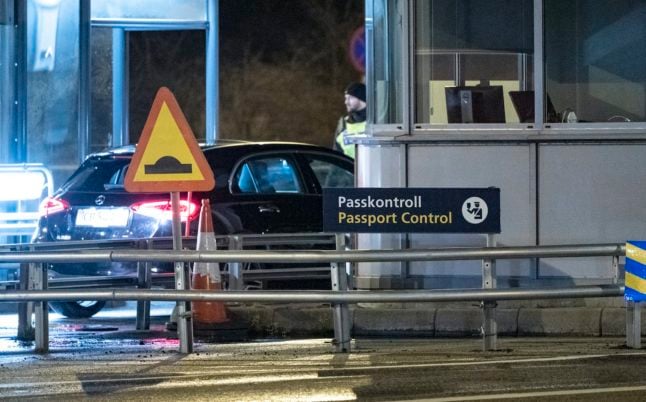In the final years of primary, middle and junior high school, as well as each semester in senior high school, all Swedish school pupils sit the so-called 'National Exam' ('Nationella Prov'), which is drawn up by Sweden's National Agency for Education (Skolverket) and is identical across the country.
The National Exam, which is meant to ensure fair and equal grading, is used as a guideline by teachers to form part of the pupils' overall end-of-the-year mark. The two are generally not expected to differ significantly, but as the final mark is based on overall performance over the year, it is nonetheless not uncommon for pupils' final marks to exceed their National Exam results.
However, second-generation immigrant pupils are much more likely than their classmates with Swedish parents to get a better final mark than their National Exam scores, according to new research for the Dagens Nyheter (DN) newspaper.
Erica Lindahl of the Institute for Evaluation of Labour Market and Education Policy (IFAU) has previously researched similar figures and reached the same conclusion as DN. In a study published in 2007, she found the same trend applied to girls, and suggested the reason could be down to overcompensation.
“It is very interesting that the same trend is visible both when it comes to gender and background. One reason could be that both groups are generally perceived to be discriminated against in the labour market. Perhaps teachers for that reason are particularly careful not to be too harsh on them in the grading process. But there is no scientific proof that this is the case,” she told DN.
The Swedish daily investigated data provided by Skolverket in the subjects Swedish, English and mathematics and found that, for example, 36 percent of ninth-graders with non-Swedish parents got a higher end-of-year mark in mathematics than their National Exam result. This compares to 29.6 percent for pupils with Swedish-born parents.
The head of Skolverket's exam unit, Karin Hector Stahre, told the newspaper that one possible explanation could be that children from foreign backgrounds struggle to overcome the language barrier when taking a written test.
“Of course one's linguistic skills affect the result in the National Exam, particularly the written skills. The teacher sees this and tests the pupils' knowledge on several occasions and in different ways. They are then able to see that the pupils demonstrate their knowledge in other ways,” she said and added that Skolverket would nonetheless look into the same figures DN used.
“It's interesting information. This is important and we will now need to analyse it further,” she said.
READ ALSO: OECD report as Sweden slips in school rankings
DN's investigation comes off the back of Sweden trying to pick itself up after a decade of falling education results and amid ongoing debates about immigrant integration.
Just weeks ago, the Organization for Economic Co-operation and Development (OECD) told the Nordic country to invest in its teaching staff through higher wages and better career opportunities.
The organization issued sharp criticism after the latest international Pisa survey, in December 2013, showed that Swedish pupils' knowledge in the subjects of mathematics, natural sciences, and reading comprehension had dropped the most out of all the 33 OECD countries – after having been one of the top performers at the start of the new millennium.
Sweden's left-green government has launched an inquiry into new education reforms, with a report due next year, and have pledged a major increase in teaching salaries from 2016.



 Please whitelist us to continue reading.
Please whitelist us to continue reading.